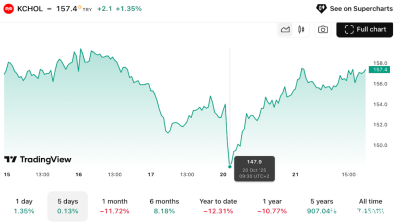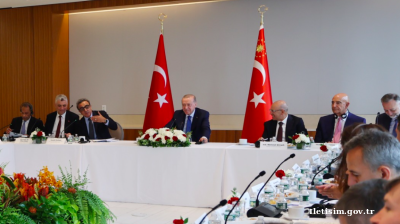Of the current EU candidate states, only Macedonia is projected to meet the accession criteria by 2023, with Serbia and Turkey likely to succeed by the mid-2030s, a new study shows.
The study conducted by the London School of Economics and Political Science, reveals that the prospect of accession could be much further in the future than the governments of the many candidate countries believe. The projections are based on predictions of a state’s ability to comply with EU laws using proxies for adjustment costs and administrative capacities.
“Albania and Bosnia-Herzegovina might have difficulties in meeting the set standards even by 2050,” says the report.
And while Belgrade has been pinning its hopes on wrapping up accession talks by 2020 or not long afterwards, the study forecasts it may not meet the criteria for entry for another decade or more.
Meanwhile, the worsening state of Turkey’s democratic institutions are likely to cause its enlargement process to freeze for several years, or perhaps indefinitely. As relations with Brussels deteriorate, Turkey’s President Recep Tayyip Erdogan said on October 1 that while Ankara does not plan to end membership talks, the country does not need EU membership. “We see that they misunderstand the patience Turkey shows in the process of EU membership,” Erdogan told the Turkish parliament.
On the other hand, the report’s authors are more positive on Macedonia. “Signs that perhaps indicate a quickening of the process might come in the shape of political changes, like the recent transfer of power to a more pro-European government in Macedonia,” the study said.
On the other hand, the report’s authors are more positive on Macedonia, the only country with a near-term prospect of entry to the bloc. “Signs that perhaps indicate a quickening of the process might come in the shape of political changes, like the recent transfer of power to a more pro-European government in Macedonia,” the study said.
Macedonia has been an EU candidate country since 2005, and has received eight positive recommendations to launch EU accession talks. However, its progress has long been stalled due to the lack of reforms in the past years and the unresolved “name dispute” with Greece, which objects to the use of the name “Macedonia” and has therefore blocked its neighbour’s EU and Nato accession progress.
However, the new Social Democrat-led government came to power at the end of May, ending a decade of rule of by the conservative VMRO-DPMNE, and pledged to work hard on speeding up the stalled Euro-Atlantic integration processes.
Overall, however, the enlargement process has slowed since the wave of expansion to the CEE region in the mid 2000s, with Croatia the last state to join the European Union back in 2013. The European Union reaffirmed its commitment to enlargement for the Western Balkans six countries during the Trieste summit earlier this year, and pledged to help them fulfil the economic and political requirements for EU accession.
Aside from Macedonia, Serbia and Montenegro are the most advanced candidates, having started negotiations to become part of the EU. Albania, a candidate country since 2014, is implementing a crucial judicial reforms needed for the country to launch accession talks. Bosnia & Herzegovina and Kosovo are potential candidates, meaning they have been promised the prospect of joining when they are ready.
Montenegro, despite being considered as one of the Western Balkans states with the best chance to accede, was omitted from the analysis due to a lack of data.
Knowing in advance which of the current candidate states are less likely to comply with EU regulations over the course of accession is essential for the EU’s monitoring and enforcement schemes, as well as for facilitating an informed public debate about future enlargement.
News

Grand master mason arrested as part of Turkey’s Can Holding investigation
Second wave of detentions executed.

Istanbul prosecutors summon Koc official and Akfen boss in Imamoglu investigation
Word of move sparked volatility in stocks.

Ukrainian military strike for first time disrupts operations of Western oil majors
Drone attack damage caused to Russian gas processing plant forces scaling back of output at Kazakh field partly owned by Chevron, Shell and Eni.
_Foto2_Divulgação_Foresea_(1)_1761062969.jpg)
Petrobras secures controversial Amazon drilling licence ahead of COP30 climate summit
Brazil's Petrobras has obtained authorisation to drill an exploratory well near the mouth of the Amazon River, sparking fierce criticism from conservationists just weeks before Brazil hosts UN climate talks.
_1761050969.jpg)

